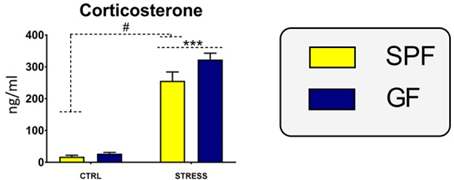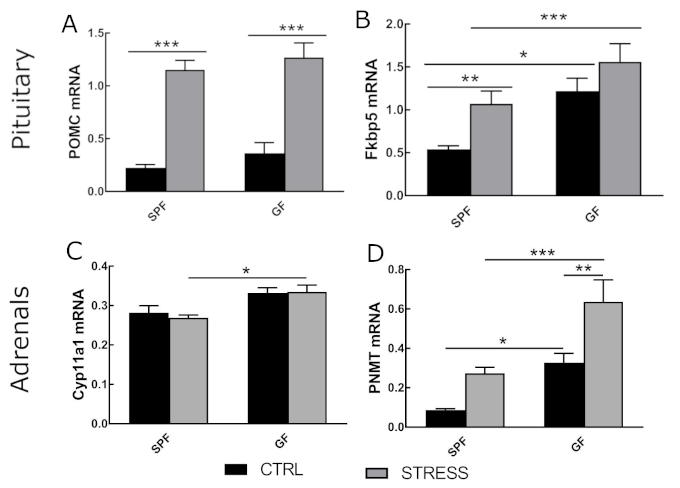Effect of gut microbiota and sex on neuroendocrine regulatory pathways during stress
The bidirectional communication between the gut microbiome and the brain is a factor that influences neurodevelopment, mental health, metabolism and immunity in health and disease. The complexity and diversity of gut microbiome can be modulated by sex, which is also an important factor in development of many diseases. In addition, gut microbiome seems to influence the stress response and stress-related psychiatric disorders often comorbid with gastrointestinal tract. However, signals responsible for these phenomena are not well characterized and further studies are critically needed to understand the role of sex in microbiome-induced effects. The purpose of this project is to determine the impact of sex on the gut microbiome-stress interactions. The project seeks to clarify the role of microbiome on the establishment of sexual dimorphism of the hypothalamus-pituitary-adrenal axis and its stress response.
The project is investigated in cooperation with the Laboratory of Gnotobiology of the Institute of Microbiology of the Czech Academy of Sciences and the Laboratory of Anaerobic Microbiology of the Institute of Animal Physiology and Genetics of the Czech Academy of Sciences.
|
|
|
Plasma corticosterone response to acute stressor in male mice. The absence of microbiota is associated with higher corticosterone response to acute restraint stress (Vagnerova et al. 2019) |
|
|
|
Effect of repeated psychosocial stress and microbiota on expression of genes involved in regulation of HPA axis. In pituitary the expression of the ACTH precursor POMC was only affected by stress (A), the Fkbp5 gene that encodes a protein which regulates the glucocorticoid signaling by negative feedback loop through a reduction in the affinity of GR for corticosterone and its trafficking to the nucleus was dependent both on stress and microbiota (B). In adrenals the expression of the CYP11a1 gene encoding key enzyme of corticosterone synthesis was modulated by microbiota. The PNMT, one of the key enzymes in biosynthesis and secretion of epinephrine, was modulated by both microbiota and stress. (Vodicka et al. 2018) |


